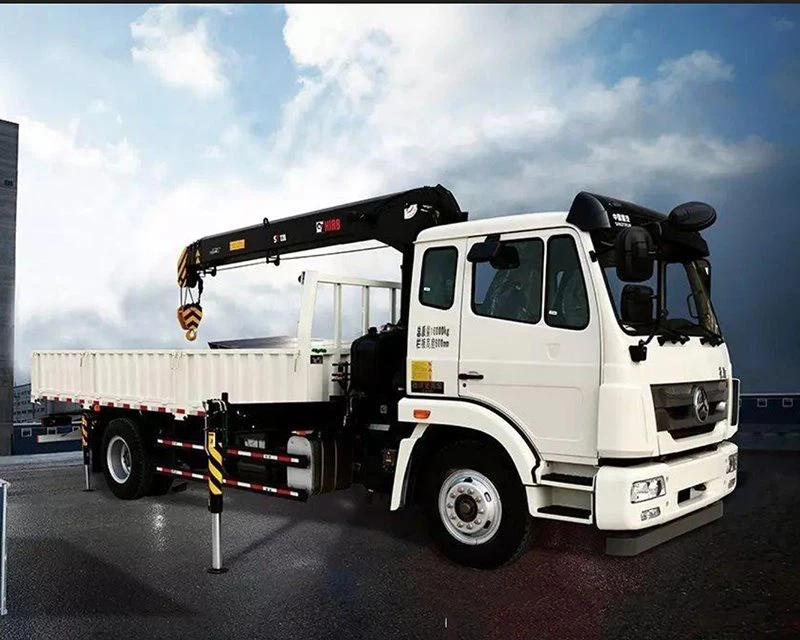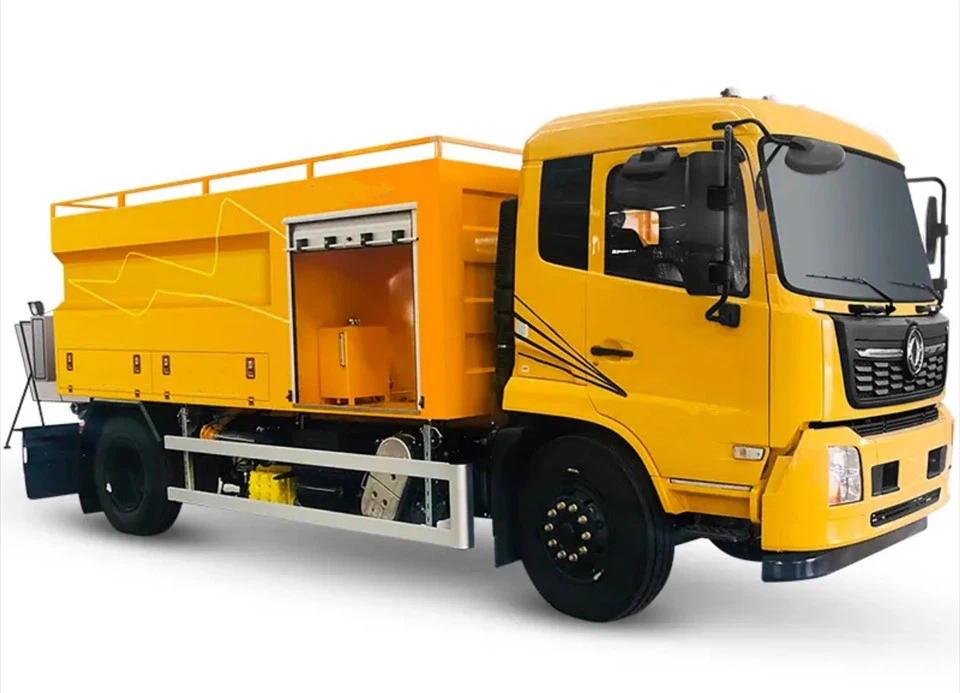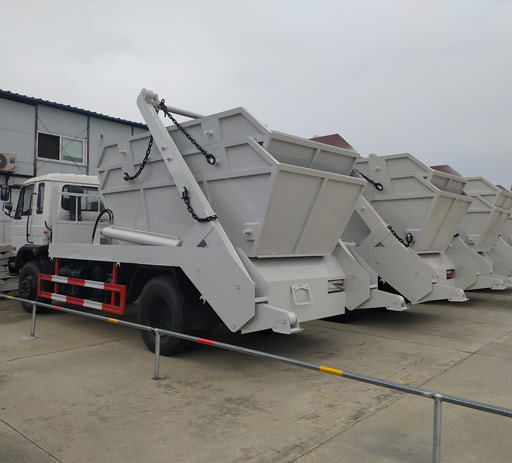Understanding Waste Bin Trucks: Essential Vehicles for Efficient Waste Management

Waste bin trucks play a crucial role in the waste management system of cities and towns around the world. These vehicles are designed specifically for collecting, transporting, and disposing of refuse in an efficient and environmentally friendly manner. In this article, we will explore various aspects of waste bin trucks, including their types, features, benefits, and a guide on selecting the right one for your needs.

Table of Contents
- What Are Waste Bin Trucks?
- Types of Waste Bin Trucks
- Key Features of Waste Bin Trucks
- Benefits of Using Waste Bin Trucks
- How to Choose the Right Waste Bin Truck
- Maintenance of Waste Bin Trucks
- The Future of Waste Bin Trucks
- Frequently Asked Questions (FAQs)
What Are Waste Bin Trucks?
Waste bin trucks are specialized vehicles used primarily for the collection of waste and recycling materials. They are equipped with features designed to facilitate the loading, transport, and unloading of garbage, making them indispensable in the sanitation industry. Typically, these trucks are fitted with a hydraulic system that enables the effective lift of bins, making the process efficient and safe.
The Role of Waste Bin Trucks in Urban Waste Management
In urban settings, waste bin trucks help maintain cleanliness and public health by ensuring that waste is collected regularly. The timely removal of refuse prevents the accumulation of waste, which can lead to health hazards and attract pests. These trucks are vital in upholding a city’s sanitation standards and promoting a cleaner environment.
Types of Waste Bin Trucks
There are several types of waste bin trucks, each designed for specific waste collection needs. Understanding these variations can help organizations choose the right vehicle for their operations.
1. Rear Loader Trucks
Rear loader trucks feature a compaction system located at the back of the truck. Workers load waste manually or with the aid of equipment. These trucks are ideal for residential collections or areas with limited access.
2. Front Loader Trucks
Front loader trucks are equipped with a front-mounted loading mechanism that can easily lift larger bins or containers. They are commonly used for commercial waste collection and are highly efficient for large volumes of waste.
3. Side Loader Trucks
Side loader trucks have mechanisms on the side that allow for the automated collection of waste bins. This truck is practical for places where speed and efficiency are prioritized, as it can operate without the need for workers to leave the vehicle.
Comparison of Waste Truck Types
| Truck Type | Best For | Loading Mechanism | Operational Efficiency |
|---|---|---|---|
| Rear Loader | Residential Areas | Manual Loading | Moderate |
| Front Loader | Commercial Waste | Front Mounted | High |
| Side Loader | High Density Areas | Automated Side Loading | Very High |
Key Features of Waste Bin Trucks
The efficiency of waste bin trucks is largely attributed to their specialized features. Here are some key elements that make them effective:
1. Compaction Technology
Many waste bin trucks are equipped with compaction technology, allowing them to compress the waste within the vehicle. This increases storage capacity and minimizes the number of trips needed to disposal sites.
2. Hydraulic Lifting System
The hydraulic systems enable effortless lifting of heavy bins, ensuring that waste can be collected with minimal manual effort. This reduces labor costs and improves safety for workers.
3. GPS and Route Optimization
Modern waste bin trucks often come equipped with GPS technology to optimize collection routes. This not only saves fuel but also ensures timely waste removal, making the operation more efficient.
4. Environment-Friendly Features
With rising concerns about the environment, many new models of waste bin trucks include eco-friendly features such as low emissions, electric or hybrid engines, which help reduce the carbon footprint of waste collection.
Benefits of Using Waste Bin Trucks
Investing in waste bin trucks offers numerous benefits for municipalities and waste management companies, including:
1. Efficiency in Waste Collection
Designed specifically for waste handling, these trucks can collect, compact, and transport waste swiftly and effectively. This reflects positively on the overall sanitation of an area.
2. Reduced Labor Costs
The automation features in many waste bin trucks can significantly lower labor costs. With less manual handling required, companies can allocate their resources effectively.
3. Enhanced Safety
Waste management involves various hazards. Truck designs that incorporate hydraulic lifting reduce physical strain on workers, offering a safer working environment.
4. Improved Environmental Impact
With more efficient waste collection and lower emissions, waste bin trucks contribute to cleaner cities and a more sustainable approach to waste management.
How to Choose the Right Waste Bin Truck
Selecting the right waste bin truck depends on several factors. Here are some tips to consider:
1. Assess Your Waste Collection Needs
Evaluate the volume of waste produced, the types of materials collected, and the frequency of collection. This will help determine the capacity and type of truck required.
2. Consider the Operating Environment
Examine the layout of your collection routes. For instance, areas with narrow streets may benefit from smaller, more maneuverable trucks.
3. Budget Constraints
Determine your budget for purchasing or leasing a waste bin truck. Comparing costs between different models and brands will help you make an informed decision.
4. Review Specifications
Look for trucks that meet your operational requirements, including load capacity, fuel efficiency, and maintenance needs.
Maintenance of Waste Bin Trucks
Proper maintenance is essential to ensure waste bin trucks operate efficiently. Here are key maintenance tips:
1. Regular Inspections
Conduct routine inspections to check hydraulic systems, brakes, and tires. Early detection of potential issues can prevent costly repairs and downtime.
2. Cleaning

Regularly clean the truck, both inside and out, to prevent the accumulation of waste and odor. This practice also helps with inspections and vehicle longevity.
3. Engine Maintenance
Schedule regular engine check-ups, oil changes, and other routine servicing according to the manufacturer’s guidelines to ensure the truck runs smoothly.
The Future of Waste Bin Trucks
The waste management industry is evolving due to technological advancements and a growing emphasis on sustainability. Here are some trends shaping the future of waste bin trucks:
1. Electric Waste Bin Trucks
The shift towards electric trucks offers reduced emissions, quieter operations, and lower fuel costs. Many manufacturers are investing in this technology to meet future environmental standards.
2. Automation and Robotics
With the advent of automation, waste collection may see robots and drones being used to assist in the process, further enhancing efficiency and safety.
3. Smart Technology Integration

Integrating smart sensors and IoT technology allows for real-time monitoring of waste levels, optimizing collection schedules, and improving operational efficiency.
Frequently Asked Questions (FAQs)
1. What is the average lifespan of a waste bin truck?
The average lifespan of a waste bin truck is typically between 8 to 12 years, depending on maintenance and usage levels.
2. How often should waste bin trucks be serviced?
Waste bin trucks should be serviced at least every six months or according to the manufacturer’s guidelines, whichever comes first.
3. Can waste bin trucks collect recyclable materials?
Yes, many waste bin trucks can be equipped to handle recyclable materials. Special compartments can be added for separating waste streams.
4. Are waste bin trucks environmentally friendly?
Many modern waste bin trucks have eco-friendly features, such as reduced emissions, hybrid engines, or full electric vehicles, contributing positively to the environment.
5. What factors influence the cost of a waste bin truck?
Cost factors for waste bin trucks include size, type, brand, features, and whether they are new or used. Operating costs also vary by model and fuel consumption.
6. Where can I purchase waste bin trucks?
Waste bin trucks can be purchased from specialized vehicle manufacturers, commercial truck dealerships, or through online marketplaces focusing on industrial vehicles.
